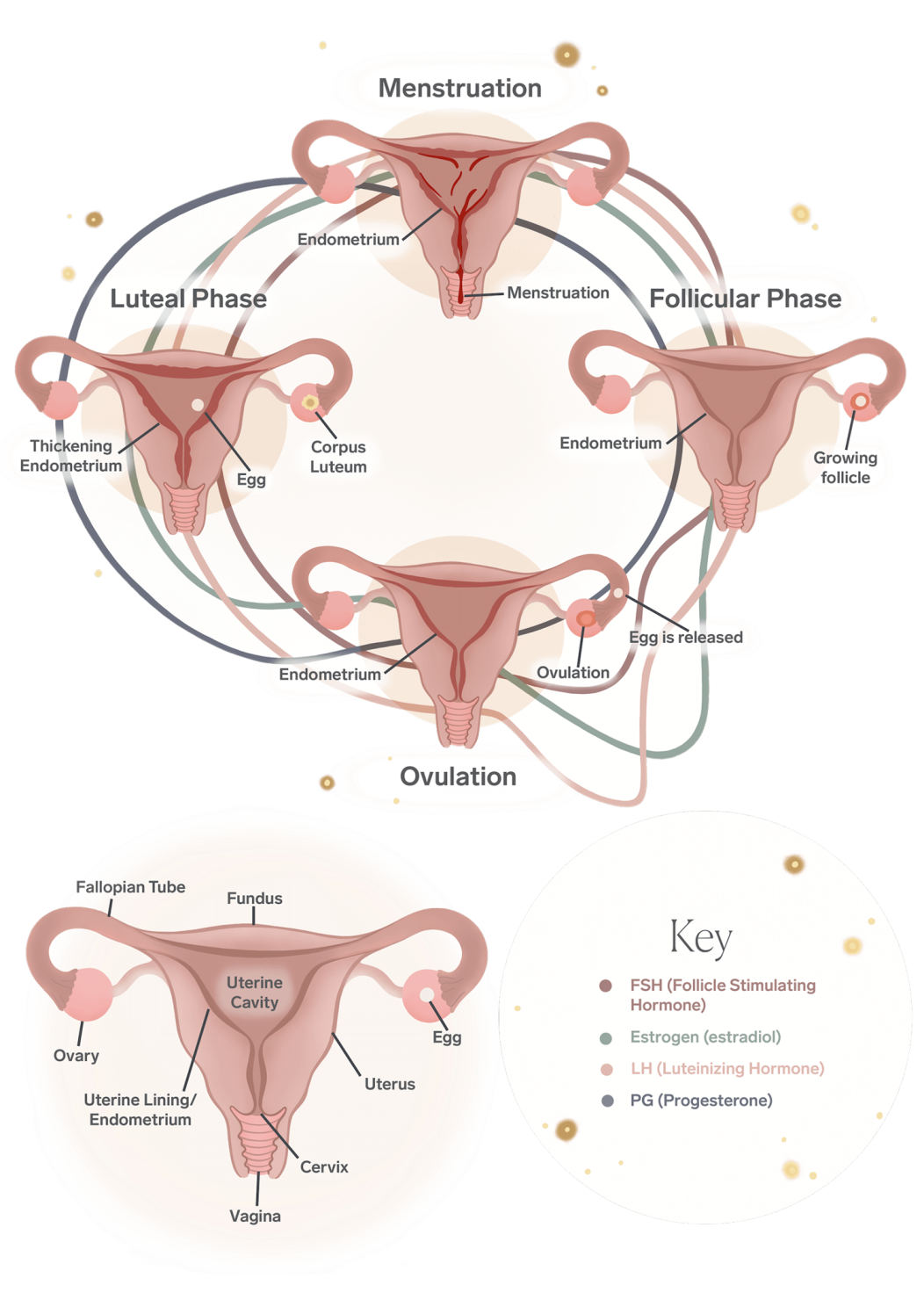The Zoom In: The Luteal Phase of your Cycle
A closer look at what really happens during the latter phase of your cycle.
There are four phases of the menstrual cycle: menstruation, follicular phase, ovulation, and luteal phase. The luteal phase takes place during the second part of your cycle. It starts just after ovulation (when the ovary releases a mature egg which travels down the fallopian tube, either ready to be fertilized by a sperm or shed), and finishes the day before your period (menstruation) starts. It typically lasts around two weeks, but this also depends on the cycle length. Some can experience a short luteal phase, while others can experience a longer one. The luteal phase can also be accompanied by some symptoms that can be a result of changing hormone levels.
When the mature egg is released from the ovaries and travels down the fallopian tube, the follicle changes its structure into the corpus luteum and begins to produce both progesterone and estrogen. Progesterone levels will peak about halfway through the luteal phase.
Progesterone is important for preparing the uterus for a fertilized egg to implant. It’s also important for supporting a pregnancy as it maintains the thickened lining of the uterus. But if pregnancy doesn’t occur, the corpus luteum will break down. This will cause both progesterone and estrogen levels to drop, leading to the shedding of your uterine lining – aka your period. This cycle phase is then followed by menstruation when a fertilized egg is not present. Huge shout out to your body for constantly going through this cycle on the regular.
And remember, although a cycle typically lasts a month, a cycle length can be longer — and that’s ok. Every menstrual period, and the accompanying menstrual products, can be different depending on many factors, from birth control to hormone levels and more. Learn about common factors that impact your cycle here and the myth of the ‘regular cycle’ here.

Your hormones can be complex and unpredictable. That’s why we’re here, on The Regular, to do what’s long overdue - to demystify what’s going on with our reproductive systems, our hormones and our whole cycle.
We’re here to support your day-to-day queries serving useful content that is uncomplicated and unbiased. No topic is too complicated or too specific for us to address/focus on.


